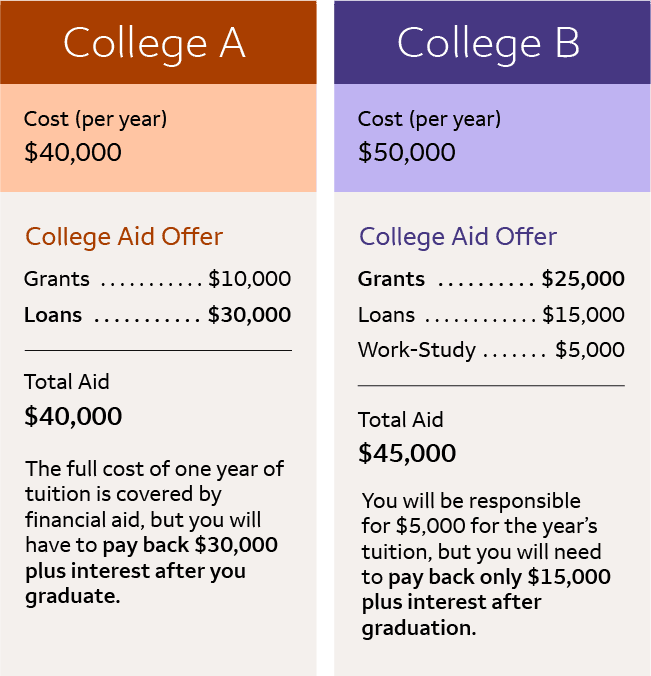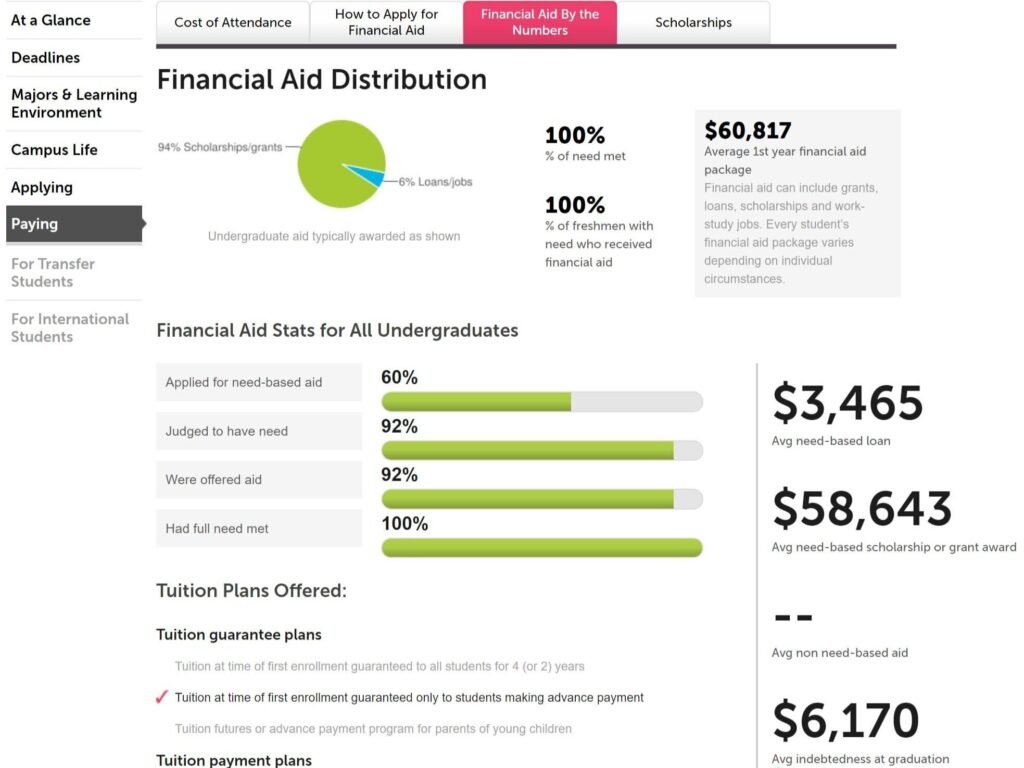
Hey there! Have you ever wondered how scholarships will impact your financial aid package? Well, you’re in luck because this article is going to dive into that very topic and give you all the information you need. Scholarships can be a great way to offset the cost of college, but it’s important to understand how they will affect your overall financial aid package. Let’s explore how scholarships can impact your financial aid and what factors you should consider when accepting or pursuing scholarships.
In this article, you’ll learn more about the different types of scholarships and how they can impact your financial aid. We’ll discuss how scholarships are applied to your financial aid package and whether they can reduce the amount of grant or loan funds you receive. Additionally, we’ll explore the potential impact of scholarships on your overall financial aid eligibility and how to make informed decisions when it comes to accepting or pursuing scholarships. So if you’re curious about how scholarships will impact your financial aid package, keep reading for all the details you need to know.

Understanding Financial Aid Packages
Financial aid plays a crucial role in helping students afford the rising cost of education. Scholarships are one form of financial aid that can significantly impact a student’s overall financial aid package. Understanding how scholarships affect your financial aid package is important in making informed decisions about your education financing. This article will explore the different components of financial aid packages, the impact of scholarships on financial aid, considerations before accepting scholarships, strategies to maximize financial aid, maintaining eligibility for financial aid, resources for finding scholarships, the scholarship application process, and a comparison of scholarships and financial aid.
Definition of Financial Aid
Financial aid refers to the various forms of funding available to students to help them pay for their education expenses. These expenses can include tuition, fees, books, supplies, and living expenses. Financial aid can come from different sources, such as the federal government, state governments, colleges and universities, private organizations, and individuals. The goal of financial aid is to make education accessible to students regardless of their financial background.

Components of Financial Aid Packages
Financial aid packages typically consist of a combination of scholarships, grants, loans, and work-study opportunities. Scholarships are awards based on merit, need, or specific criteria, while grants are typically need-based and do not have to be repaid. Loans are funds that need to be repaid with interest, and work-study offers students the opportunity to work part-time and earn money to help cover educational expenses. Each component of a financial aid package serves a different purpose and can be tailored to meet the student’s individual needs.
Types of Scholarships
Scholarships are a type of financial aid that does not have to be repaid. There are various types of scholarships available to students, including merit-based scholarships, need-based scholarships, athletic scholarships, and creative scholarships.
Merit-Based Scholarships
Merit-based scholarships are awarded to students based on their academic achievements, extracurricular involvement, leadership qualities, and other talents or accomplishments. These scholarships are often highly competitive and can be awarded by colleges, universities, private organizations, and foundations. Merit-based scholarships can help students offset the cost of tuition, fees, and other educational expenses.
Need-Based Scholarships
Need-based scholarships are awarded to students who demonstrate financial need. These scholarships typically require students to submit the Free Application for Federal Student Aid (FAFSA) or other financial aid forms to determine their eligibility based on their family’s income and assets. Need-based scholarships can help students cover their educational expenses and reduce the need for loans.
Athletic Scholarships
Athletic scholarships are awarded to student-athletes who excel in a particular sport. These scholarships are typically offered by colleges and universities and cover part or all of the student’s tuition, fees, and other expenses. Athletic scholarships provide opportunities for talented athletes to pursue their education while participating in intercollegiate sports.
Creative Scholarships
Creative scholarships are awarded to students who demonstrate exceptional talent in areas such as art, music, dance, theater, and writing. These scholarships are often offered by colleges, universities, and private organizations to support students with creative aspirations. Creative scholarships can help students pursue their passion while reducing the financial burden of their education.

Impact of Scholarships on Financial Aid
Scholarships can have a significant impact on a student’s overall financial aid package. Depending on the amount and type of scholarship received, scholarships can lead to a reduction in loan amounts, adjustment of grants and work-study opportunities, and changes in the expected family contribution (EFC).
Reduction in Loan Amounts
One of the benefits of receiving scholarships is that they can reduce the need for loans. If a student receives a scholarship that covers part or all of their tuition, fees, and other expenses, they may not need to take out as many loans to fund their education. This can significantly reduce the amount of debt accumulated during college and ease the financial burden after graduation.
Adjustment of Grants and Work-Study
When a student receives a scholarship, it can also impact the amount of grants and work-study opportunities offered in their financial aid package. Scholarships are considered a form of financial aid, and colleges and universities may adjust other components of the financial aid package to ensure that the total amount of aid received does not exceed the student’s demonstrated financial need. This means that if a student receives a significant scholarship, the college or university may reduce the amount of grants or work-study offered to maintain a balance in the financial aid package.
Effect on Expected Family Contribution (EFC)
The expected family contribution (EFC) is a measure used to determine a student’s eligibility for need-based financial aid. It is calculated based on the family’s income, assets, and other factors. When a student receives a scholarship, it can lower their EFC, as the scholarship is considered a resource available to cover educational costs. A lower EFC can potentially result in an increase in need-based financial aid, such as grants and work-study opportunities.
Considerations Before Accepting Scholarships
Before accepting scholarships, there are several considerations to keep in mind. These considerations include the renewability of scholarships, stringent requirements, and the impact on need-based aid in subsequent years.
Renewability of Scholarships
Some scholarships are renewable, meaning they can be awarded for multiple years as long as the student continues to meet the eligibility criteria. It is important to understand the specific terms and conditions of the scholarships being offered, including any GPA requirements or other criteria that must be maintained to retain the scholarship. Failing to meet the renewal requirements could result in the loss of the scholarship in subsequent years.
Stringent Requirements
Certain scholarships may have stringent requirements, such as maintaining a specific GPA, participating in certain activities, or pursuing a particular field of study. It is essential to carefully review the requirements of the scholarships being offered and consider if they align with your educational goals and interests. Accepting a scholarship with stringent requirements that do not align with your aspirations may limit your flexibility and opportunities during college.
Impact on Need-Based Aid in Subsequent Years
If you are receiving need-based aid in your financial aid package, it is important to understand the potential impact scholarships can have in subsequent years. Scholarships can reduce your demonstrated financial need, which may result in a reduction or elimination of need-based grants and work-study opportunities in future financial aid packages. This could potentially increase your out-of-pocket expenses or the need to rely more heavily on loans to cover the cost of attendance.

Strategies to Maximize Financial Aid
While scholarships can impact your financial aid package, there are strategies you can employ to maximize your financial aid opportunities. These strategies include understanding institutional policies, appealing for more aid, and seeking external funding sources.
Understanding Institutional Policies
Different colleges and universities have different policies and practices regarding financial aid. It is essential to research and understand the financial aid policies of the institutions you are considering. Some colleges may have more generous financial aid packages or offer specific scholarships for which you may be eligible. By understanding these policies, you can make informed choices about where to apply and ultimately attend.
Appealing for More Aid
If you feel that your financial aid package does not adequately meet your needs, you have the option to appeal for more aid. This can be done by contacting the financial aid office of your college or university and explaining your financial circumstances or any changes that may warrant a reassessment of your financial aid package. Providing additional documentation or explaining extenuating circumstances can sometimes result in an increase in financial aid.
Seeking External Funding Sources
In addition to scholarships offered by colleges and universities, there are numerous external funding sources available that can help supplement your financial aid package. These sources can include private organizations, corporate scholarships, community foundations, and professional associations. Researching and applying for external scholarships can provide additional financial support and reduce your reliance on loans.
Maintaining Eligibility for Financial Aid
Once you have been awarded financial aid, it is important to maintain your eligibility to continue receiving aid throughout your college education. There are several factors that can impact your eligibility for financial aid, including satisfactory academic progress, meeting income and asset requirements, and complying with work-study obligations.
Satisfactory Academic Progress
Colleges and universities typically have standards for satisfactory academic progress that students must meet to remain eligible for financial aid. These standards often require students to maintain a certain GPA and successfully complete a minimum number of credits each semester. Failing to meet these standards can result in the loss of financial aid.
Meeting Income and Asset Requirements
Financial aid eligibility is determined, in part, by a family’s income and assets. It is important to comply with any requirements related to reporting income or changes in income to ensure the accuracy of your financial aid calculations. Failing to report income accurately can result in a reassessment of your financial aid package or potentially the repayment of financial aid funds received.
Complying with Work-Study Obligations
If you have been awarded work-study as part of your financial aid package, it is important to fulfill your work-study obligations. This may involve working a certain number of hours per week or completing specific tasks assigned by your employer. Failing to meet your work-study obligations can impact your financial aid eligibility in subsequent years.

Resources for Finding Scholarships
Finding scholarships can sometimes feel like a daunting task, but there are numerous resources available to help you in your search. These resources include online scholarship databases, local community organizations, and professional associations and foundations.
Online Scholarship Databases
There are many online scholarship databases that can help you find scholarships for which you may be eligible. These databases allow you to search for scholarships based on various criteria, such as your field of study, demographic information, or specific interests. Some popular online scholarship databases include Fastweb, Scholarships.com, and College Board’s Scholarship Search.
Local Community Organizations
Local community organizations, such as civic groups, foundations, and religious institutions, often offer scholarships to students in their community. These scholarships may be targeted toward specific schools, fields of study, or demographic groups. Researching and connecting with local community organizations can uncover additional scholarship opportunities.
Professional Associations and Foundations
Many professional associations and foundations offer scholarships to students pursuing careers in specific fields or industries. These scholarships can provide financial support and networking opportunities. Researching professional associations and foundations related to your intended field of study or career path can uncover scholarships tailored to your interests.
Scholarship Application Process
Once you have identified scholarships for which you are eligible, the scholarship application process begins. This process typically involves researching eligibility criteria, preparing application materials, and submitting applications by the specified deadlines.
Researching Eligibility Criteria
Each scholarship will have specific eligibility criteria that you must meet to be considered. This criteria may include academic achievements, extracurricular involvement, community service, leadership, and other factors. It is important to carefully review the eligibility criteria for each scholarship you are interested in to ensure that you meet all the requirements.
Preparing Application Materials
Scholarship applications often require various materials, such as essays, letters of recommendation, transcripts, and financial information. It is important to carefully follow the instructions provided and ensure that all required materials are included in your application. Pay close attention to any essay prompts or specific questions and provide thoughtful and compelling responses.
Submitting Applications and Deadlines
Once you have prepared your application materials, it is important to submit your applications by the specified deadlines. Missing a deadline can result in your application being disqualified, so it is important to keep track of deadlines and allow ample time to complete and submit your applications. Consider creating a calendar or spreadsheet to help you stay organized and ensure you meet all deadlines.
Comparison of Scholarships and Financial Aid
Scholarships and financial aid serve different purposes and have different criteria for awarding funds. Financial aid is typically needs-based and takes into account a student’s demonstrated financial need when determining eligibility. Scholarships, on the other hand, can be merit-based, need-based, or based on other specific criteria. Scholarships are often awarded to recognize and reward academic achievements, special talents, or community involvement.
Financial aid is intended to provide assistance to students who would otherwise be unable to afford their education, while scholarships are often awarded to students who have demonstrated exceptional abilities or meet specific criteria. Both scholarships and financial aid can significantly impact a student’s ability to afford their education and should be carefully considered and evaluated when making decisions about how to finance your education.
Conclusion
Understanding how scholarships will affect your financial aid package is crucial in making informed decisions about your education financing. Scholarships can have a significant impact on reducing the need for loans, adjusting grants and work-study opportunities, and potentially lowering the expected family contribution. Before accepting scholarships, it is important to consider the renewability and requirements of the scholarships and how they may impact need-based aid in subsequent years. Strategies to maximize financial aid include understanding institutional policies, appealing for more aid, and seeking external funding sources. Maintaining eligibility for financial aid requires satisfactory academic progress, meeting income and asset requirements, and complying with work-study obligations. By utilizing resources such as online scholarship databases, local community organizations, and professional associations and foundations, you can find scholarship opportunities that align with your interests and goals. The scholarship application process involves researching eligibility criteria, preparing application materials, and submitting applications by the specified deadlines. While scholarships and financial aid serve different purposes, understanding the impact and criteria of each can help you make informed decisions for optimal financial assistance.





